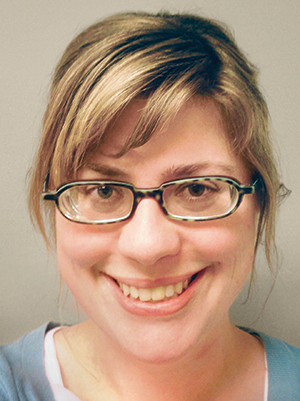
Amy Cunningham
WHEN I WAS 27, becoming a caregiver was the furthest thing from my mind. That changed when my mother was diagnosed with metastatic pancreatic cancer in 2008. Suddenly, my younger brother and I joined the 7 million Americans who are long-distance caregivers providing emotional, financial and hands-on support to a loved one more than one hour away.
My brother and I lived in the Philadelphia area, while our mother lived alone in Connecticut with no nearby relatives. After her diagnosis, we found ourselves making frequent—often weekly—450-mile round-trip drives to care for her. From my experience, I have several pieces of advice on how to manage life as a long-distance caregiver.
Get organized
As soon as possible, work with your loved one to create a care plan. The Handbook for Long-Distance Caregivers from the Family Caregiver Alliance has a helpful care plan checklist. Discuss how often you may be able to visit, tasks you can do in-person and remotely, and outside assistance that may be needed.
If you will be communicating with your loved one’s health care providers and financial institutions, be sure they have documentation authorizing you to do so. You should also make your own copies of important documents, such as medication lists, providers’ phone numbers, durable powers of attorney and advance directives.
Create a support network
After my mother’s diagnosis, there was an outpouring of support from family and friends. My brother and I enlisted our mother’s friends, sisters, social worker and home health aide to provide additional care and companionship when we could not be with her. We also asked them to alert us immediately to any changes in her physical or mental status.
Manage your guilt
Long-distance caregivers can feel particularly torn between their caregiving responsibilities and other obligations. When I was working, I worried about not being with my mother. When I was on the road or caring for her, I felt that I was neglecting my work.
Having a care plan and a support network can help to ease this guilt. Remind yourself that you are doing the best you can.
Take care of yourself
Long-distance caregiving can mean frequent travel, which often translates into a steady diet of fast food, little time for exercise, and disrupted sleep. Additionally, the cost of gas, tolls, and train and plane fares can quickly add up. Try to keep fruit and other healthy food on hand when traveling, squeeze in quick walks or stretching, do your best to get adequate sleep, and allow yourself a break if your health or finances are suffering.
Ultimately, my brother and I were able to surround our mother with love and support, and we fulfilled her wish of dying at home. Though we may have been physically distant at times, we know that she knew we were with her throughout her journey.
Cancer Today magazine is free to cancer patients, survivors and caregivers who live in the U.S. Subscribe here to receive four issues per year.




